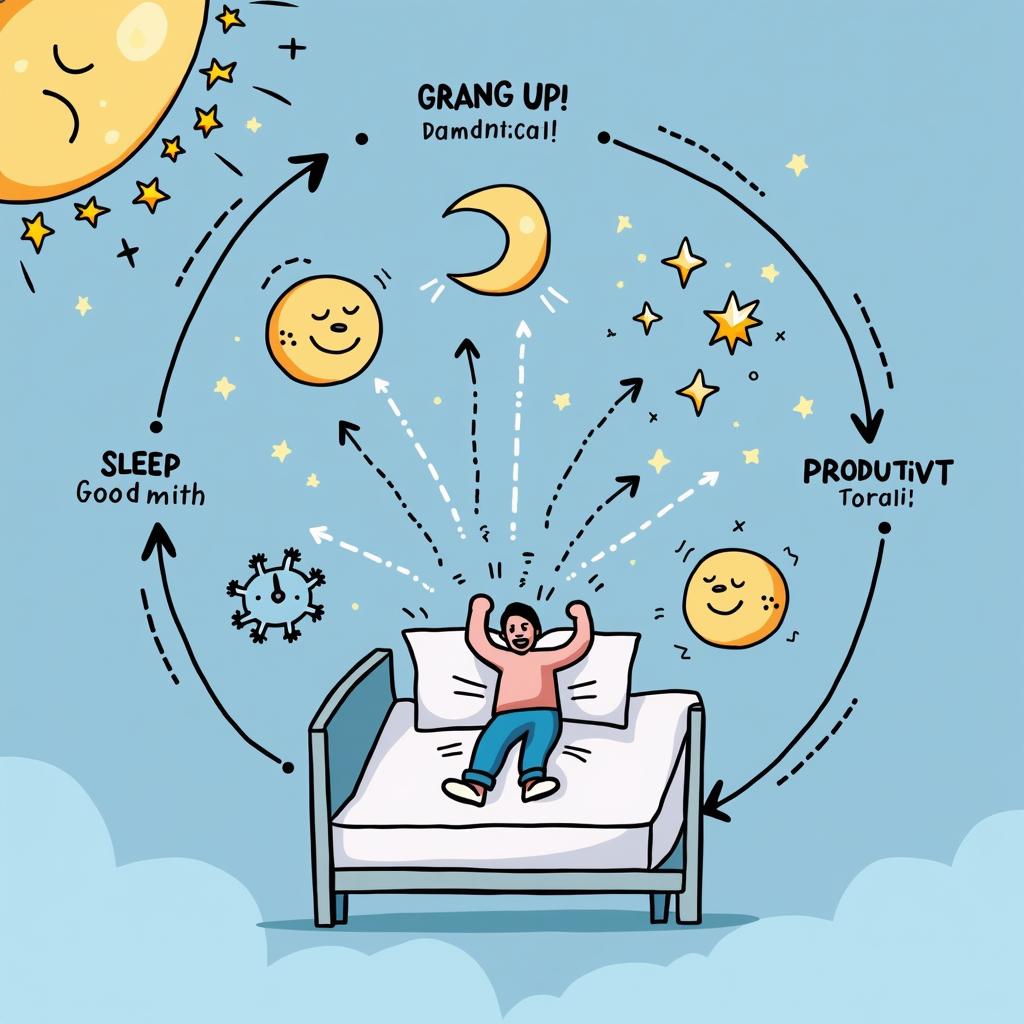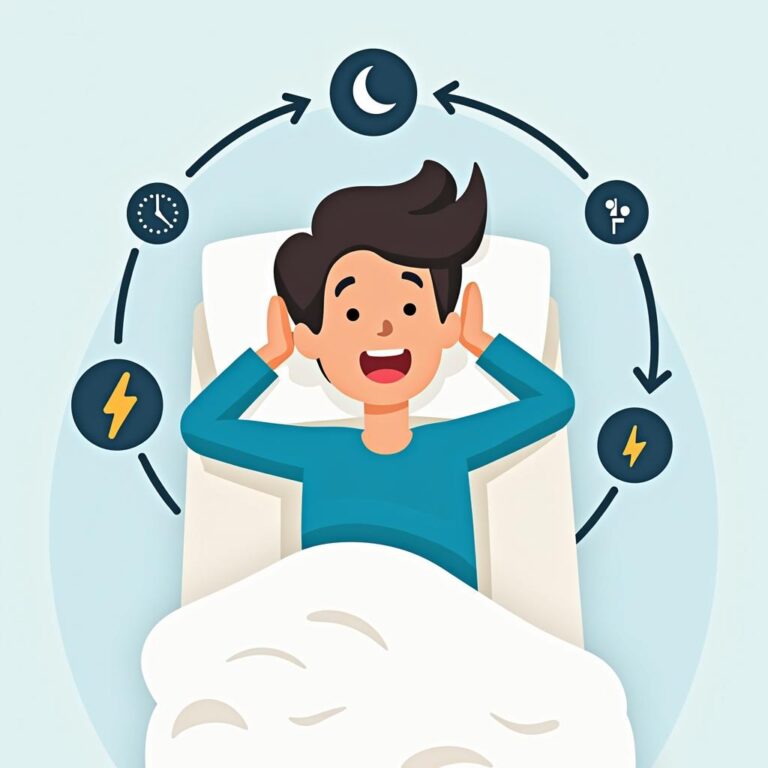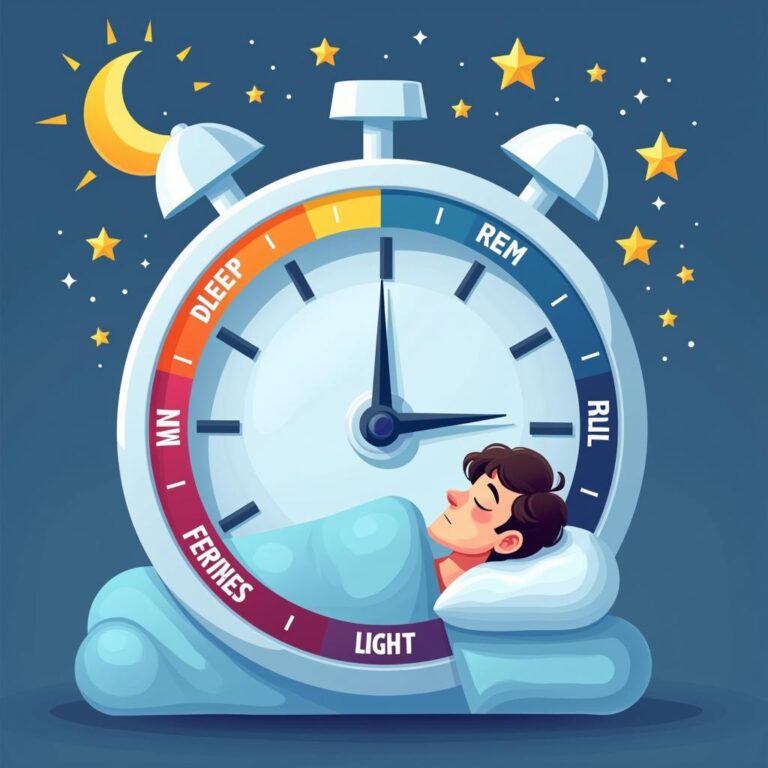Sleep is an essential part of our lives, playing a vital role in overall well-being and productivity. Understanding sleep cycles is crucial for anyone looking to enhance their cognitive functions and maximize daily performance. In this article, we will explore what sleep cycles are, their significance, and how you can harness this knowledge to improve your productivity.
What Are Sleep Cycles?
Sleep cycles refer to the various stages of sleep that our bodies go through during the night. A typical sleep cycle lasts about 90 minutes and consists of several stages, including:
- Stage 1 (NREM Sleep): This is the lightest stage of sleep, lasting only a few minutes. During this phase, you drift in and out of sleep, and it’s easy to be awakened.
- Stage 2 (NREM Sleep): As you enter a deeper sleep, your heart rate slows down, and your body temperature drops. This stage typically lasts for about 20 minutes and is essential for memory consolidation.
- Stage 3 (NREM Sleep): Known as deep sleep, this stage is restorative and is when the body performs vital functions like tissue repair and growth. This stage is crucial for physical health.
- Stage REM (Rapid Eye Movement): This stage occurs after about 90 minutes of sleep and is where most dreaming occurs. REM sleep is important for memory, learning, and emotional processing.
Throughout a typical night, a person will experience multiple sleep cycles, each consisting of these stages. Understanding these cycles can help in optimizing sleep patterns for better productivity.
The Importance of Sleep Cycles for Productivity
Sleep is not just a time for our bodies to rest; it is when essential processes occur that contribute to our mental sharpness and overall energy levels. Here are some reasons why understanding sleep cycles is crucial for productivity:
- Impact on Cognitive Function: Properly cycling through the stages of sleep enhances memory retention, decision-making skills, and creative problem-solving abilities. Insufficient or disrupted sleep can lead to cognitive fog and decreased efficiency.
- Emotional Regulation: REM sleep plays a significant role in processing emotions and stress. A well-rested individual is likely to handle workplace pressures better and maintain a positive attitude.
- Physical Health and Energy Levels: Deep sleep rejuvenates the body, leading to better physical health, which in turn supports productivity levels. A lack of sleep can result in fatigue and decreased motivation.
How to Optimize Your Sleep Cycles for Productivity
Here are practical tips to improve your sleep cycles and boost your productivity:
1. Maintain a Consistent Sleep Schedule
Going to bed and waking up at the same time every day helps your body regulate its internal clock, leading to more efficient sleep cycles. Aim for 7-9 hours of sleep each night.
2. Create an Ideal Sleep Environment
Your sleep environment can significantly affect your ability to fall and stay asleep. Consider these factors:
- Darkness: Use blackout curtains or sleep masks to block out light.
- Temperature: Keep your bedroom cool; a temperature between 60-67°F (15-19°C) is often recommended for optimal sleep.
- Noise: Minimize noise distractions. Consider using white noise machines or earplugs.
3. Limit Screen Time Before Bed
The blue light emitted by screens can interfere with the production of melatonin, the hormone responsible for regulating sleep. Aim to avoid screens at least 1 hour before bedtime.
4. Mind Your Diet and Caffeine Intake
Your food choices can impact your sleep. Avoid heavy meals, caffeine, and alcohol close to bedtime. Instead, choose a light snack if you’re hungry.
5. Incorporate Relaxation Techniques
Engage in relaxation methods like deep breathing, meditation, or gentle stretching. These techniques can help calm the mind and prepare your body for sleep.
6. Monitor Sleep Quality with Technology
Consider investing in a sleep tracker to analyze your sleep patterns. Many devices can provide insights into your sleep cycles, allowing you to adjust your habits accordingly.
The Cycle of Productivity
Understanding the connection between sleep cycles and productivity is essential for anyone wanting to boost their work performance. Here’s how you can approach it:
- Prioritize Sleep: Recognize that adequate sleep is as important as exercise and nutrition for productivity.
- Adjust Work Hours: If possible, align your work tasks with your natural energy levels. For example, you may want to tackle challenging assignments during your peak focus hours post a good night’s sleep.
- Incorporate Short Naps: Napping during the day can help recharge your energy levels and improve alertness, as long as they do not interfere with nighttime sleep.
Conclusion
In conclusion, understanding sleep cycles is fundamental for enhancing productivity. By recognizing the importance of quality sleep, creating a conducive environment, and employing effective sleep habits, individuals can unlock their potential for better cognitive performance and overall well-being. Investing in your sleep is investing in your productivity – a critical aspect of both personal and professional success.







